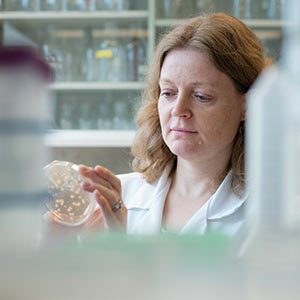Three LFS Projects Receive Over $3.5 Million in Funding from the BC Knowledge and Development Fund (BCKDF)
As part of a concerted effort to drive innovation and economic growth in the province, the provincial government has invested nearly $25 million into post-secondary research projects through the BC Knowledge and Development Fund (BCKDF). This funding will provide 34 research projects access to cutting-edge technology and equipment.

We are proud to announce that three research projects from our faculty received a combined amount of over $3.5 million from the BCKDF. Congratulations to Drs. Vivien Measday, Alexandra Protopopova, and Risa Sargent! Below is a list of the funded projects with short summaries of the research.
Research Projects
-
MiDAS Microbial Diversity Expansion for Applied Sciences
$3,276,459 BCKDF contribution
Principal Investigators: Dr. Thibault Mayor, Department of Biochemistry and Molecular Biology, and Dr. Vivien Measday, Wine Research Centre
This BCKDF award supports the development of new technologies that will expand the use of yeast for bioprocessing applications that benefit the environment, economy and health of British Columbians. These applications include the foods and beverage industry (e.g. wine, beer, dough), removal of pollutants from the environment and the production of non-animal proteins, enzymes and new medicines.
-
Laboratory for Human-Animal Interaction and Companion Animal Welfare
$125,000 BCKDF contribution
Principal Investigator: Dr. Alexandra Protopopova, Faculty of Land and Food Systems
This BCKDF award will help establish a state-of-the-art observation laboratory at UBC that will study the relationship between people and companion animals. By generating new discoveries in human-animal interactions, the laboratory will help transform the companion animal industry and promote animal welfare.
-
Plant-pollinator and global change lab
$123,454 BCKDF contribution
Principal Investigator: Dr. Risa Sargent, Faculty of Land and Food Systems
This funding will help deepen our understanding of the threats facing wild bees and the extent to which these threats can be mitigated through changing land use practices. The knowledge gained will help protect critical pollinators that support healthy ecosystems and many of B.C.’s most important crops.
Read the government news release here, and the UBC specific news release here.